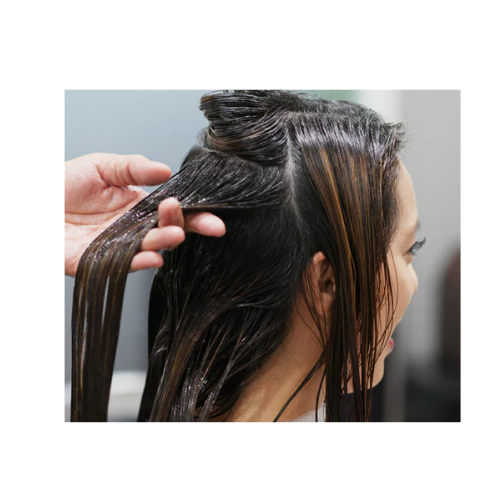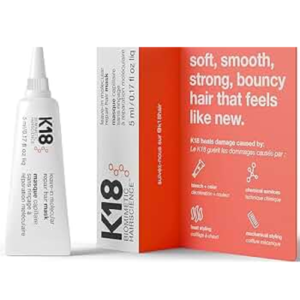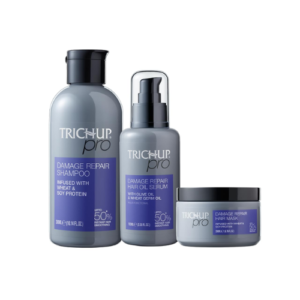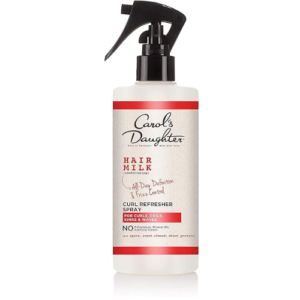Hair care can be overwhelming, with a plethora of products available to tackle everything from dryness to damage, dandruff, and hair thinning. Among the most popular choices are hair masks and hair tonics. Both are designed to nourish and enhance hair health, but they serve different purposes and have unique benefits. Choosing between the two can be a challenge, especially if you’re unsure which one is best suited for your specific hair needs.
In this comparison article, we’ll explore the key differences between hair masks and hair tonics, their benefits, and how to choose the right product for your hair type. By the end, you’ll have a clear understanding of whether a hair mask or a hair tonic is the better option for your hair care routine.
What is a Hair Mask?
A hair mask is a deep-conditioning treatment that provides intense nourishment and repair to the hair. Typically used once or twice a week, hair masks contain a rich blend of ingredients like natural oils, proteins, and vitamins to restore moisture, repair damage, and improve overall hair texture. These masks are ideal for addressing issues like dryness, split ends, and frizz.
Key Benefits of Hair Masks:
- Deep Hydration: Hair masks penetrate deep into the hair shaft, providing long-lasting moisture.
- Repair and Strengthen: Masks with proteins and keratin help strengthen weak strands and repair damage from styling tools or chemical treatments.
- Improved Texture and Shine: Hair masks smooth the hair cuticle, reducing frizz and adding shine, making hair more manageable.
- Prevents Breakage: Regular use can minimize hair breakage and split ends, promoting stronger and healthier hair.
- Targets Specific Hair Concerns: There are hair masks available for various hair needs, such as color protection, volume, and scalp health.
Who Should Use a Hair Mask?
Hair masks are particularly beneficial for those with:
- Dry or Brittle Hair
- Damaged or Chemically Treated Hair
- Thick, Coarse, or Curly Hair
- Frizzy and Unmanageable Hair
If you have fine or oily hair, choose a lightweight mask to avoid product buildup or heaviness.
What is a Hair Tonic?
A hair tonic is a liquid-based formula designed to nourish the scalp, stimulate hair growth, and add a natural shine. Hair tonics are usually water-based and contain ingredients like herbal extracts, essential oils, and vitamins. Unlike hair masks, which are applied directly to the hair, tonics are meant to be massaged into the scalp to improve blood circulation, reduce dandruff, and create a healthy environment for hair growth.
Key Benefits of Hair Tonics:
- Scalp Health: Hair tonics improve scalp circulation, reduce itchiness, and promote a healthy scalp.
- Prevents Hair Loss: Tonics with ingredients like biotin, ginseng, and caffeine stimulate hair follicles, reducing hair thinning and promoting hair growth.
- Adds Shine and Volume: Tonics add a natural shine and enhance the volume of hair without weighing it down.
- Reduces Dandruff and Scalp Issues: Tonics containing tea tree oil, peppermint, and salicylic acid help eliminate dandruff and soothe irritation.
- Non-Greasy and Lightweight: Hair tonics are lighter than oils or masks, making them ideal for daily use, even on fine or oily hair.
Who Should Use a Hair Tonic?
Hair tonics are suitable for those with:
- Oily or Fine Hair
- Thinning Hair or Hair Loss Concerns
- Dandruff or Itchy Scalp
- Need for Daily Hair Conditioning
Hair tonics are a great choice if you’re looking for a lightweight product to incorporate into your daily routine for scalp care and overall hair health.
Hair Mask vs. Hair Tonic: Key Differences
| Features | Hair Mask | Hair Tonic |
|---|---|---|
| Purpose | Deep conditioning, repair, and hydration | Scalp health, hair growth, and shine |
| Primary Use | Applied to hair lengths and ends | Applied to scalp and roots |
| Texture | Thick, creamy, and rich | Liquid, water-based, lightweight |
| Frequency of Use | 1-2 times per week | Daily or as needed |
| Ideal For | Dry, damaged, or frizzy hair | Thinning hair, oily scalp, dandruff |
| Time Required | Requires 15-30 minutes for full effect | Quick application, no need to rinse |
| Results | Smoothens, repairs, adds shine and moisture | Stimulates growth, adds volume, reduces scalp issues |
| Common Ingredients | Natural oils, butters, proteins (keratin, silk), vitamins | Herbal extracts, essential oils (rosemary, peppermint), biotin, caffeine |
| Potential Drawbacks | May cause buildup on fine or oily hair if overused | May not provide sufficient conditioning for very dry hair |
When to Use a Hair Mask
- Use a hair mask if you have dry, damaged, or chemically treated hair. It’s the perfect solution for reviving dull hair, reducing breakage, and restoring smoothness and shine.
- Choose a mask that targets your specific hair concerns, such as hydration for dry hair or protein for damaged strands.
- Apply once or twice a week for best results. Leave on for at least 15-30 minutes before rinsing thoroughly.
When to Use a Hair Tonic
- Use a hair tonic if you’re dealing with scalp issues like dandruff, itchiness, or hair thinning. Tonics are lightweight and non-greasy, making them ideal for daily use.
- Focus on massaging the tonic into your scalp to boost blood circulation and stimulate hair follicles.
- Consider incorporating a tonic into your routine if you want to promote hair growth and maintain scalp health.
Can You Use Both?
Yes! Hair masks and hair tonics can complement each other when used correctly. You can apply a hair mask once or twice a week for deep conditioning, and use a hair tonic daily to maintain scalp health and stimulate hair growth. This combination provides both internal nourishment (through the scalp) and external conditioning (through the hair strands), giving you the best of both worlds.
Top Recommendations for Hair Masks and Hair Tonics
For those looking to incorporate both into their hair care routine, here are some top recommendations:
Best Hair Masks for Deep Conditioning:
- Olaplex No.3 Hair Perfector – Repairs and strengthens damaged hair.
- Shea Moisture Raw Shea Butter Deep Treatment Masque – Ideal for dry, curly, and thick hair.
- Briogeo Don’t Despair, Repair Deep Conditioning Mask – Reduces frizz and restores moisture.
Best Hair Tonics for Scalp Health and Growth:
- Mielle Organics Rosemary Mint Scalp & Hair Strengthening Oil – Stimulates hair growth and strengthens roots.
- Pura D’or Scalp Therapy Energizing Scalp Serum – Reduces dandruff and promotes healthy scalp.
- Krone Professional Anti Dandruff Tonic – Soothes itchy scalp and fights dandruff.
Choosing between a hair mask and a hair tonic depends on your specific hair needs. If you’re looking for deep hydration, repair, and frizz control, go for a hair mask. If your primary concern is scalp health, hair thinning, or dandruff, a hair tonic is the way to go. However, for optimal hair health, consider using both in a complementary routine. With the right products and consistency, you can achieve luscious, healthy hair that shines from root to tip!




